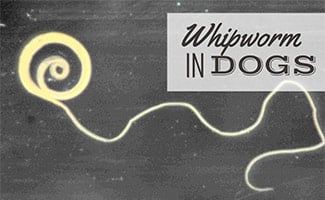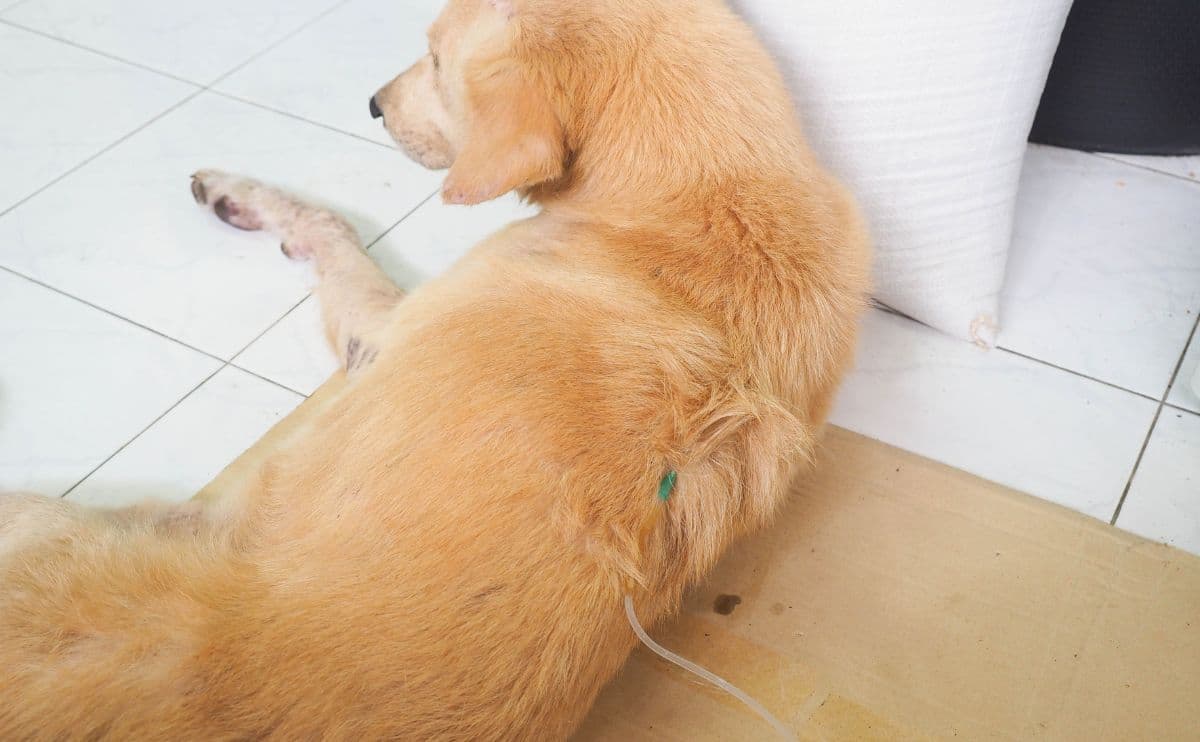When you purchase through links on our site, we may earn a commission. Here’s how it works.
It can be scary for dog owners when they notice something isn’t right with their furry friends. If your dog has diarrhea and an upset stomach, whipworms might be to blame. It’s vital to understand all the basics of this common parasite so you can keep your dog safe.
What Are Whipworms?
Whipworms, or Trichuris vulpis, are 1/4-inch long intestinal parasites that live in the cecum and large intestine of dogs. They get their name from their appearance. With a thick anterior and long thin posterior, they resemble a whip.

There are 3 stages in the whipworm life cycle: egg, larvae and adult. Whipworms lay eggs in the large intestine, and the eggs travel out of the dog’s body in the feces. Eggs infect the soil and can be picked up by the original host for reinfection or by a new host. Inside the egg is a single cell, which turns into a larva in approximately 1 month. Once ingested, they hatch and mature to the adult stage within 3 months. The adults burrow their anterior end into the mucosal lining of the large intestine and lay their eggs starting the cycle again.
How Do Dogs Get Whipworms?
The cause of whipworm infestations is always oral ingestion of whipworm eggs. Dogs can ingest the eggs by eating contaminated feces or soil.
Symptoms
Be sure to contact your vet at the first signs of whipworm. Common symptoms include:
- Anemia
- Diarrhea
- Bloody stool
- Hemorrhaging
- Weight loss
- Upset stomach
Not all dogs with whipworms have signs of infection, especially in the early stages. You’re more likely to catch it early through regular internal parasite testing at your vet’s office. Be sure to talk with your vet about how often you should have this done.
Diagnosis & Treatment
Your vet will need a stool sample to diagnose whipworms in your dog. Because whipworms lay eggs infrequently, it may take more than 1 stool sample to make a diagnosis.
The more common medications used to treat whipworms include:
You’ll also need to disinfect your yard by removing the feces and replacing the soil. Whipworm eggs are extremely hardy and can live up to 5 years in the soil so reinfection is a common problem. Check out the video below for tips on how to treat your soil for a whipworm infestation.
Prevention
The best way to prevent whipworms is with a preventative oral medication that also treats heartworms. There are only a few heartworm prevention meds that treat whipworms too. Interceptor is one of the only ones available today.
Can People Get Whipworms?
Humans can get whipworms; however, it’s a different species than the one that affects dogs. You don’t need to be overly concerned about getting whipworms from your dog because it’s extremely rare for it to happen. You should still use caution and protect yourself when cleaning up after your infected pet by wearing gloves when handling their feces.
Treating Your Yard For Whipworms
If you’re concerned about a whipworm infestation in your yard, you may want to consider treating your soil. This short 3-minute video gives you some tips on how to kill whipworms in soil.
What Other Worms May Affect My Dog
Unfortunately, whipworms aren’t the only worms you have to protect your dog from getting. In our article about worms in dogs, we tell you what you need to know about symptoms, treatment and prevention for the most common worms. We also have some great in-depth articles about coccidia, hookworms and tapeworms if you need more specific information to help treat and protect your dog.
Tagged With: Parasites, Poop, Worms

